Machine learning is presented variously as nightmare and panacea, gold rush and dystopia. But a group of artists hacking away at CTM Festival earlier this year did something else with it: they humanized it.
The MusicMakers Hacklab continues our collaboration with CTM Festival, and this winter I co-facilitated the week-long program in Berlin with media artist and researcher Ioann Maria (born in Poland, now in the UK). Ioann has long brought critical speculative imagination to her work (meaning, she gets weird and scary when she has to), as well as being able to wrangle large groups of artists and the chaos the creative process produces. Artists are a mess – as they need to be, sometimes – and Ioann can keep them comfortable with that and moving forward. No one could have been more ideal, in other words.
And our group delved boldly into the possibilities of machine learning. Most compellingly, I thought, these ritualistic performances captured a moment of transformation for our own sense of being human, as if folding this technological moment in against itself to reach some new witchcraft, to synthesize a new tribe. If we were suddenly transported to a cave with flickering electronic light, my feeling was that this didn’t necessarily represent a retreat from tech. It was a way of connecting some long human spirituality to the shock of the new.
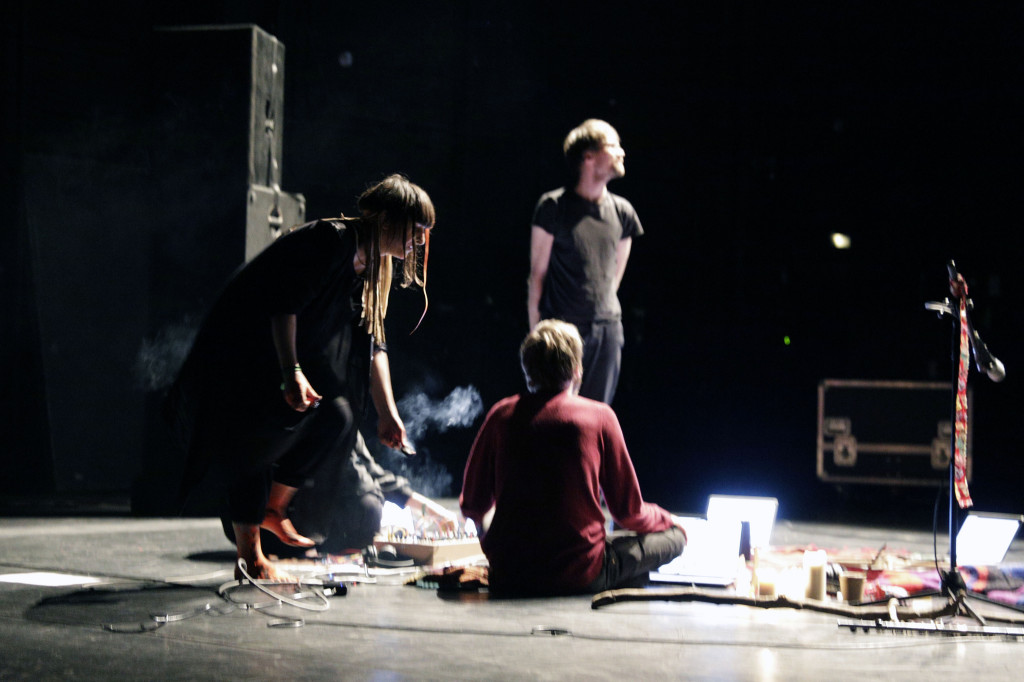
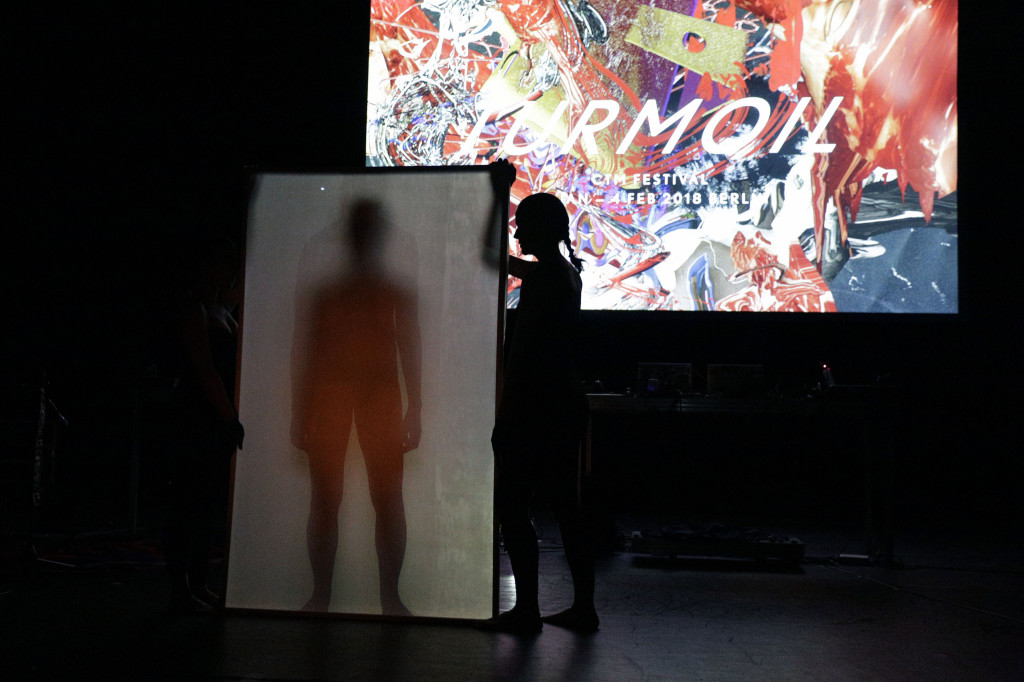
This wasn’t just about speculating about what AI would do to people, though. Machine learning applications were turned into interfaces, making gestures and machines interact more clearly. The free, artist-friendly Wekinator was a popular choice. That stands in contrast to corporate-funded AI and how that’s marketed – which is largely as a weird, consumer convenience. (Get me food reservations tonight without me actually talking to anyone, and then tell me what music to listen to and who to date.)
Here, instead, artists took machine learning algorithms and made it another raw material for creating instruments. This was AI getting the machines to better enable performance traditions. And this is partly our hope in who we bring to these performance hacklabs: we want people with experience in code and electronics, but also performance media, musicology, and culture, in various combinations.
(Also spot some kinetic percussion in the first piece, courtesy dadamachines.)
Check out the short video excerpt or scan through our whole performance documentation. All documentation courtesy CTM Festival – thanks. (Photos: Stefanie Kulisch.)
Big thanks to the folks who give us support. The CTM 2018 MusicMakers Hacklab was presented with Native Instruments and SHAPE, which is co-funded by the Creative Europe program of the European Union.
Full audio (which makes for nice sort of radio play, somehow, thanks to all these beautiful sounds):
Full video:
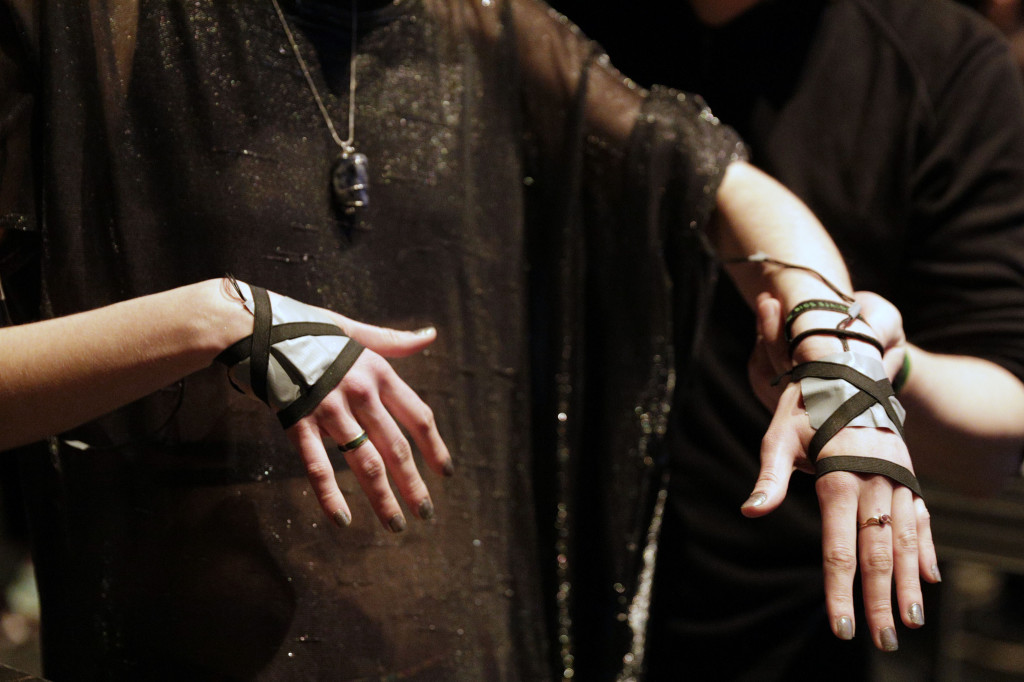
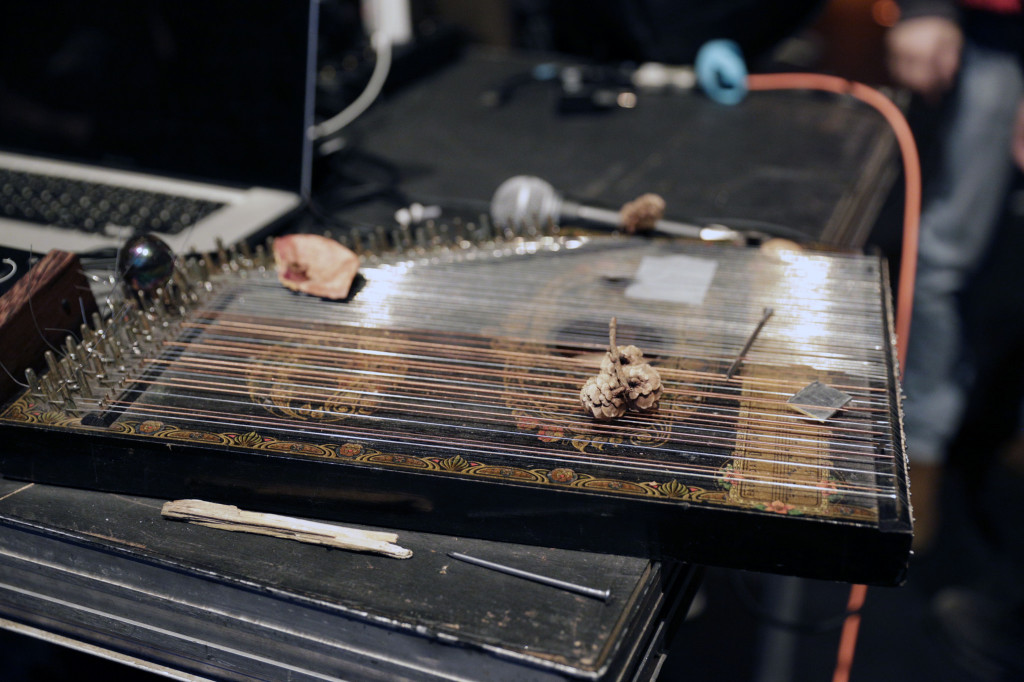
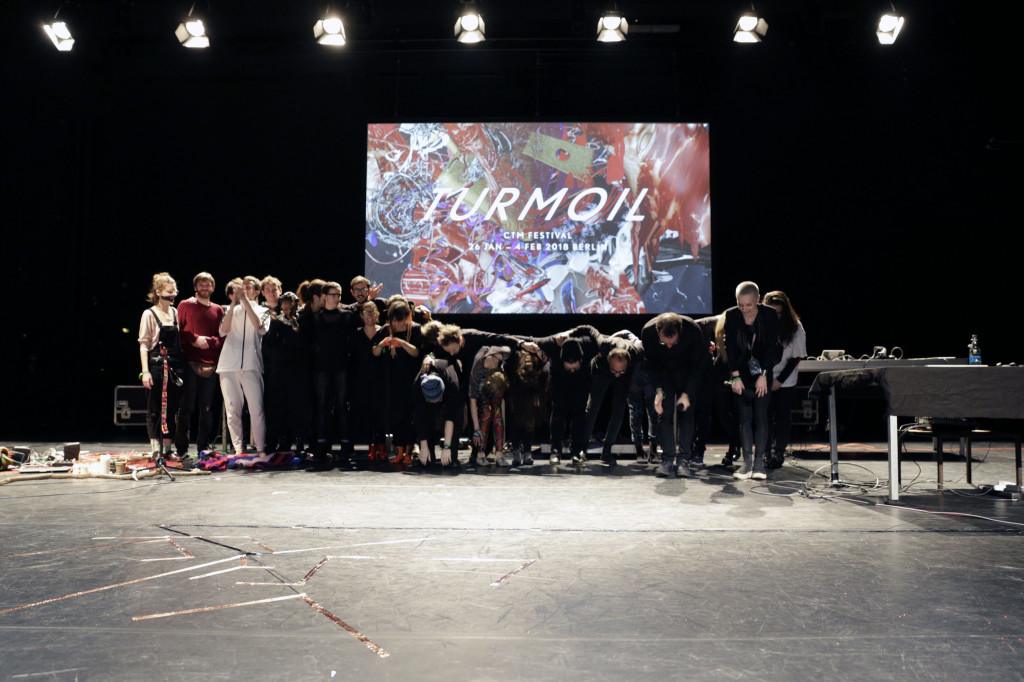
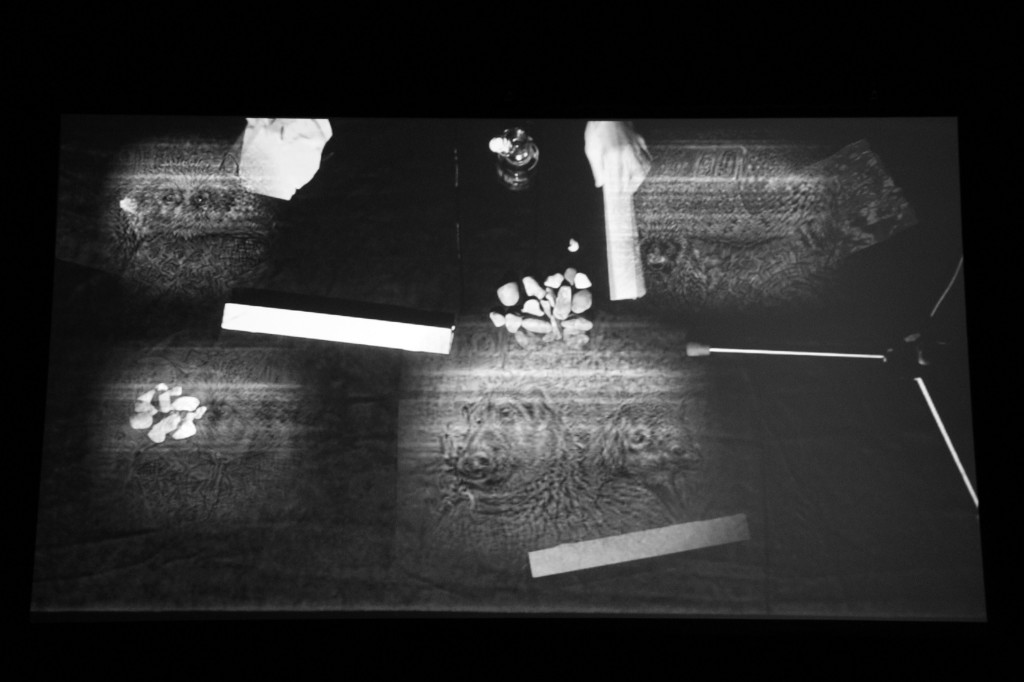
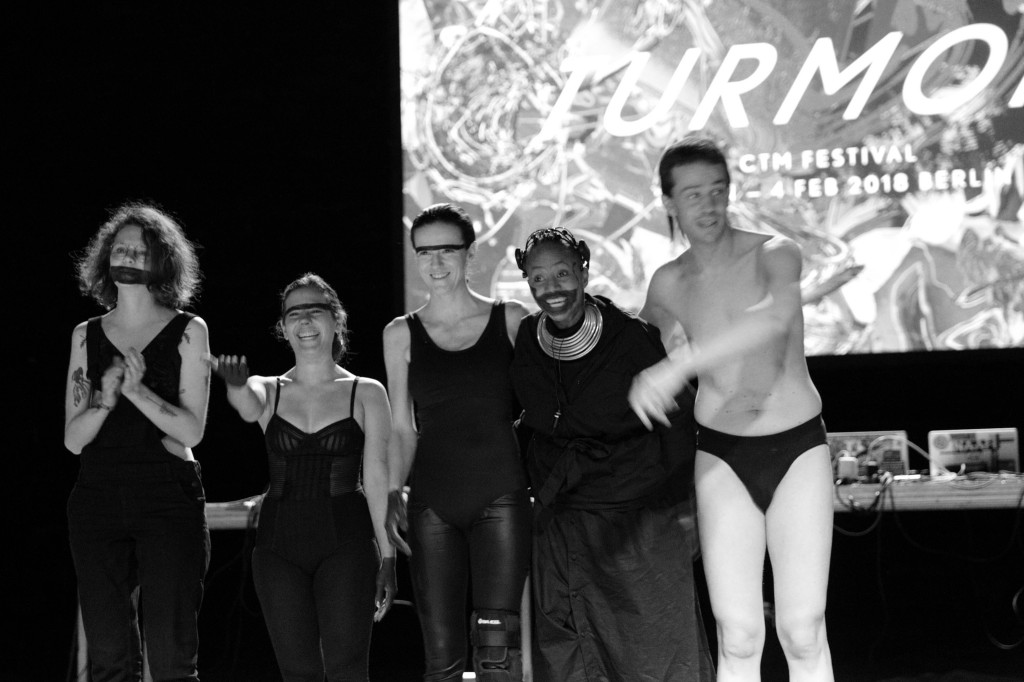
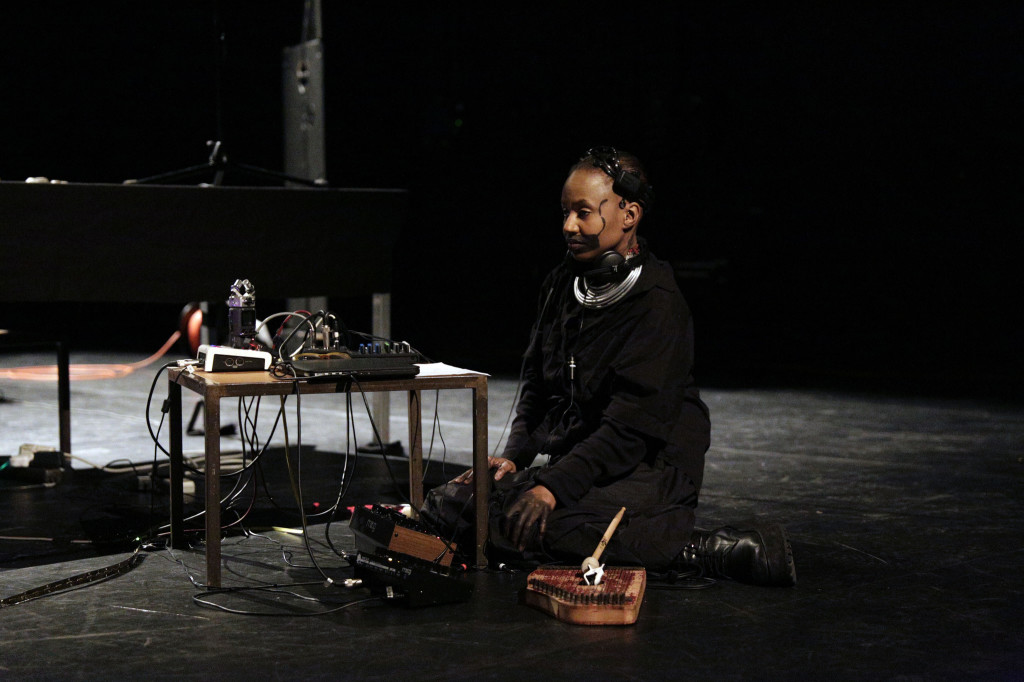
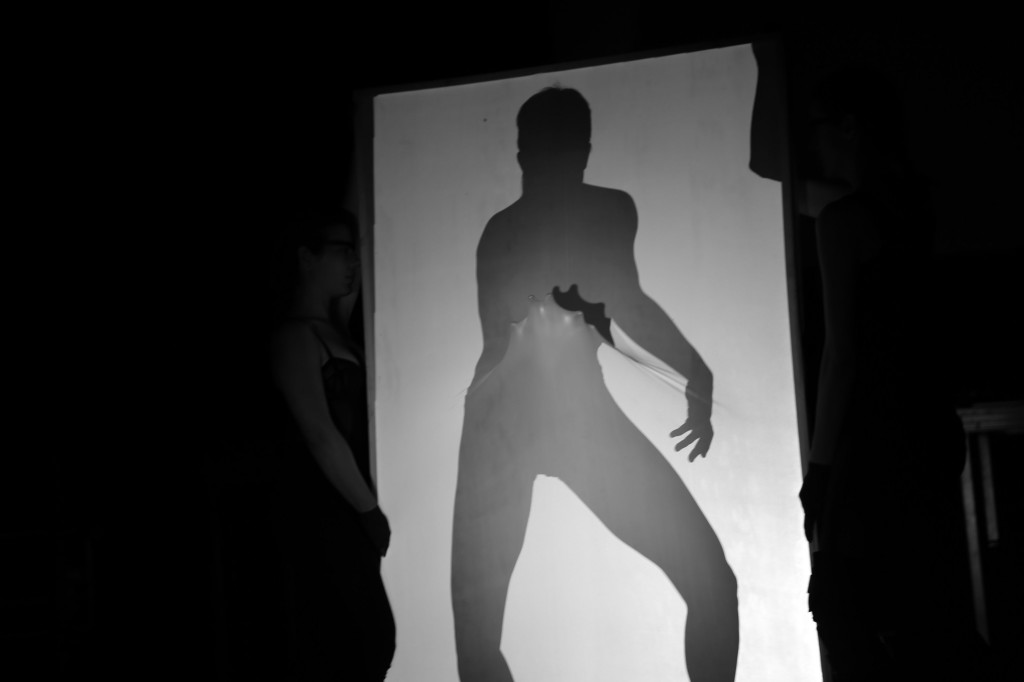
2018 participants – all amazing artists, and ones to watch:
Adrien Bitton
Alex Alexopoulos (Wild Anima)
Andreas Dzialocha
Anna Kamecka
Aziz Ege Gonul
Camille Lacadee
Carlo Cattano
Carlotta Aoun
Claire Aoi
Damian T. Dziwis
Daniel Kokko
Elias Najarro
Gašper Torkar
Islam Shabana
Jason Geistweidt
Joshua Peschke
Julia del Río
Karolina Karnacewicz
Marylou Petot
Moisés Horta Valenzuela AKA ℌEXOℜℭℑSMOS
Nontokozo F. Sihwa / Venus Ex Machina
Sarah Martinus
Thomas Haferlach
https://www.ctm-festival.de/archive/festival-editions/ctm-2018-turmoil/transfer/musicmakers-hacklab/
For some of the conceptual and research background on these topics, check out the Input sessions we hosted. (These also clearly inspired, frightened, and fired up our participants.)
A look at AI’s strange and dystopian future for art, music, and society